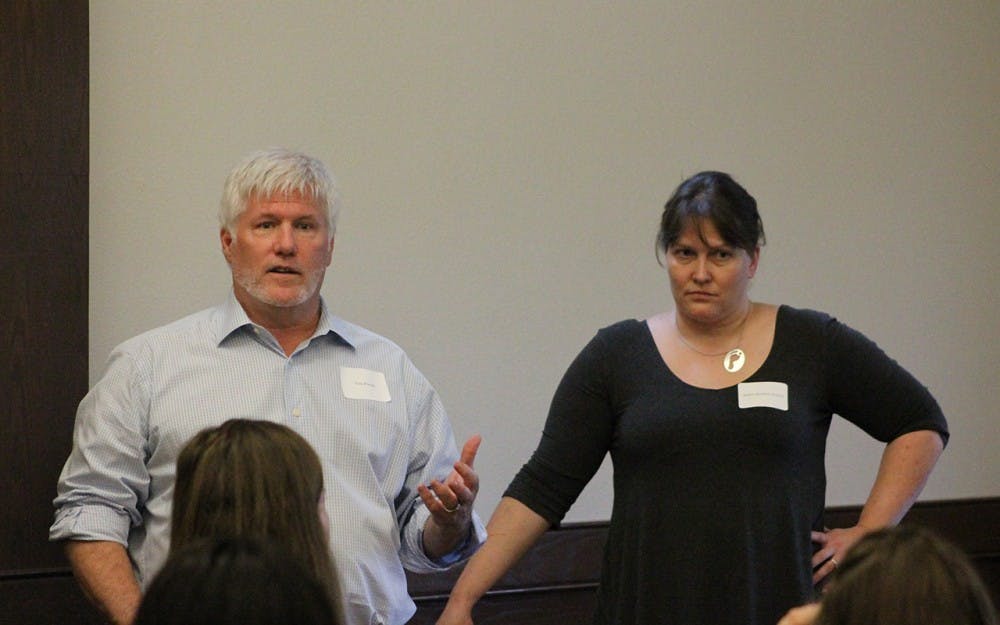As Tom French and Kelley Benham French’s daughter, Juniper, bounced around the room, images were projected on-screen from her first couple of months of life as a premature baby on the verge of death.
Juniper was born at 23 weeks and 6 days, and the decision to prolong her life or not was the central focus of the Frenches’ talk on ethics in medical care of premature babies Tuesday night.
The Frenches, both professors in The Media School, focused on the ethics of making medical decisions for a child who could not express her own wishes yet, such as the decision to keep her on life support despite an 80 percent chance of death or disability.
“There’s a window of time when a baby gains agency,” Benham French said. “They become their own person with their own rights, and our desires don’t matter as much.”
Benham French discussed the possible consequences if Juniper survived and grew up disabled.
“Is she going to blame us?” she asked. “Is she going to hate us?”
Ethics was one of the greatest factors during the course of the treatment, she said.
“What’s going to be important for us, whether she lives or dies, is that we feel good about the people that we were in this moment,” Benham French said.
After the Frenches concluded the lecture portion of the event, the floor was opened to questions from the audience, many of whom were pre-med students.
Though they are very committed to the life of their daughter, the Frenches were firm on the topic of abortion.
“You can’t look at a 23-week baby and not think about abortion,” Benham French said. “It has a personality and a will, but that doesn’t mean that I would have wanted a politician involved in a conversation with my doctor.”
French voiced his support for the right to choose as pictures of his daughter lingered on-screen.
“The idea of politicians giving their speeches in Congress, making their decisions for women, it’s very upsetting,” he said.
The pair was eager to address the ethics of accumulating more than a $1 million in hospital bills to save the life of one child.
“We could be paying for Ted Bundy to grow up, or we could be paying for Carl Sagan,” Benham French said. “Most micro-preemies either die in the first three days or they turn out like Juniper. They’re very expensive but they get out, and they do well, and they have a great life.”
Even if Juniper had disabilities, they would not have regretted the decision to keep her alive, Benham French said.
“Parents who take home disabled kids surveyed years down the road rate their quality of life as very high,” she said. “Your priorities change.”
Near the end of the discussion, Juniper was brought in, and her parents her carried her around while they discussed her intimate medical details.
“She’s not just okay,” said Benham French, looking at her giggling daughter. “She’s amazing. She’s hell on wheels.”






